
Latest Coronavirus Disease COVID 19 News and Research
Study reveals antiviral effects of curcumin
Curcumin, a natural compound found in the spice turmeric, could help eliminate certain viruses, research has found.
Montana Rodeo goes on, bucking fears on fort peck reservation
Cowboys lined the metal chutes that released bucking horses and their riders into the arena, Miss Rodeo Montana signed autographs for fans, and coronavirus warning signs ended with "Face mask usage is of personal choice."
More COVID-19 cases where blood type A is common
Now, a new study by researchers at the University of Ulm, Germany, which is published on the preprint server medRxiv in July 2020, focuses on how blood group distribution is related to the mapped dynamics of the epidemic as shown by its geographical distribution.
Seroprevalence of SARS-CoV-2 antibody among blood donors in China
Now, a study published on the preprint server medRxiv* in July 2020 reports on the low seroprevalence of antibodies to the virus, now designated severe acute respiratory syndrome coronavirus 2 (SARS-CoV-2), among blood donors in Wuhan, the Chinese city it all started in, and two other equally large cities in China.
Game-Changer: A SARS-CoV-2 serological test for 50-cents per sample!
A recent study published in the preprint server medRxiv in July 2020 shows that this is indeed possible. The development of this inexpensive but reliable and sensitive test could change the face of preventive measures for COVID-19 in low-resource settings.
Report calls for customized evidence on optimal implementation of COVID-19 measures
Today a report was released that calls for the use of research evidence on the optimal implementation of public health interventions for COVID-19 in varied global settings.
Common antioxidant enzyme catalase as COVID-19 treatment
A new paper by researchers from the USA and China and published on the preprint server bioRxiv in July 2020 discusses a new drug based on the catalase enzyme, which could play a vital part in reducing the inflammation associated with progressive and severe COVID-19 disease.
COVID-19 outcomes better in countries with female leaders
A thought-provoking new study published on the preprint server medRxiv on Thursday suggests that countries headed by female leaders showed better outcomes over a variety of indicators.
Rapid genomic surveillance of healthcare-associated SARS-CoV-2
The researchers from the University of Cambridge, Cambridge United Kingdom have published their findings in a study titled, “Rapid implementation of SARS-CoV-2 sequencing to investigate cases of healthcare-associated COVID-19: a prospective genomic surveillance study,” in the latest issue of The Lancet Infectious Diseases.
New insight into the SARS-CoV-2 infection process
Canadian researchers from the Department of Neurology and Neurosurgery, Montreal Neurological Institute, McGill University, Montreal, QC, have found that severe acute respiratory syndrome coronavirus 2 (SARS-CoV-2) may be using a unique method to gain entry into the cells.
Durable coating for hard surfaces could help avoid food contamination
In the future, a durable coating could help keep food-contact surfaces clean in the food processing industry, including in meat processing plants.
Study shows fused lung cells are pervasive in severe COVID-19
In a recent bioRxiv paper, scientists from Institut Pasteur and other research centers in France demonstrated how pathological effects of severe acute respiratory syndrome coronavirus 2 (SARS-CoV-2) are modulated by cellular proteins that can either inhibit or facilitate cell fusion and subsequent syncytia formation.
NCI funds researchers to investigate how antibody responses affect COVID-19 outcomes
A $328,000 National Cancer Institute grant will enable researchers at Dartmouth's and Dartmouth-Hitchcock's Norris Cotton Cancer Center (NCCC) to investigate one of the mechanisms that may be responsible for the body's inability to fight COVID-19.
Compelling study shows heparin may protect against COVID-19
A compelling new study conducted by an international team of researchers has demonstrated that the widely used blood-thinning medication - heparin - can block infection with severe acute respiratory syndrome coronavirus 2 (SARS-CoV-2), the agent that causes coronavirus disease 2019 (COVID-19).
British Columbia’s successful response to COVID-19 - policy anchored by science
Researchers at the University of British Columbia and the BC Center for Disease Control in Vancouver have reported the first estimates of severe acute respiratory syndrome coronavirus 2 (SARS-CoV-2) seroprevalence for Canada before and after mitigation measures were relaxed in May.
Disease-carrying mosquitoes fly free as health departments focus on coronavirus
The U.S. public health system has been starved for decades and lacks the resources necessary to confront the worst health crisis in a century. Read the investigation from KHN and The Associated Press.
KHN’s ‘What the Health?’: The Trump administration’s war on Fauci
Not only does the Trump administration lack a comprehensive plan for addressing the ongoing coronavirus pandemic, it spent much of the past week working to undercut one of the nation’s most trusted scientists, Dr. Anthony Fauci, director of the National Institute of Allergy and Infectious Diseases.
CBD may help reduce cytokine storm and excessive lung inflammation in COVID-19
Cannabidiol, or CBD, may help reduce the cytokine storm and excessive lung inflammation that is killing many patients with COVID-19, researchers say.
Why doctors keep monitoring kids who recover from mysterious COVID-linked illness
Israel Shippy doesn’t remember much about having COVID-19 — or the unusual auto-immune disease it triggered — other than being groggy and uncomfortable for a bunch of days. He’s a 5-year-old, and would much rather talk about cartoons, or the ideas for inventions that constantly pop into his head.
A coronavirus vaccine: Where does it stand?
More than four months into the coronavirus pandemic, how close are the U.S. and the world to a safe and effective vaccine? Scientists say they see steady progress and are expressing cautious optimism that a vaccine could be ready by spring.

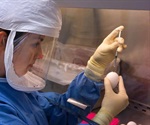
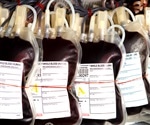
_960d7234c567440ead350a0ece2a40b1-150x125.jpg)
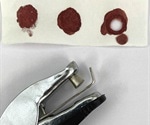
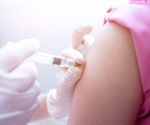
_27785474ad3944b4942e6799a71f6309-150x125.jpg)

_98706d6ef75f418cb57f7fdabcccf8c2-150x125.jpg)
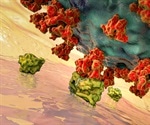
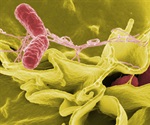
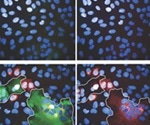
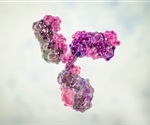


%2c_3D_illustration._A_virus_transmitted_by_mosquito_and_caus_-_Kateryna_Kon_M1_0169e949c192415f987ebf3618689a4c-150x125.jpg)
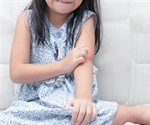
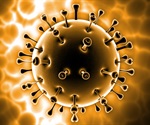

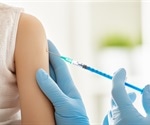
































No hay comentarios:
Publicar un comentario